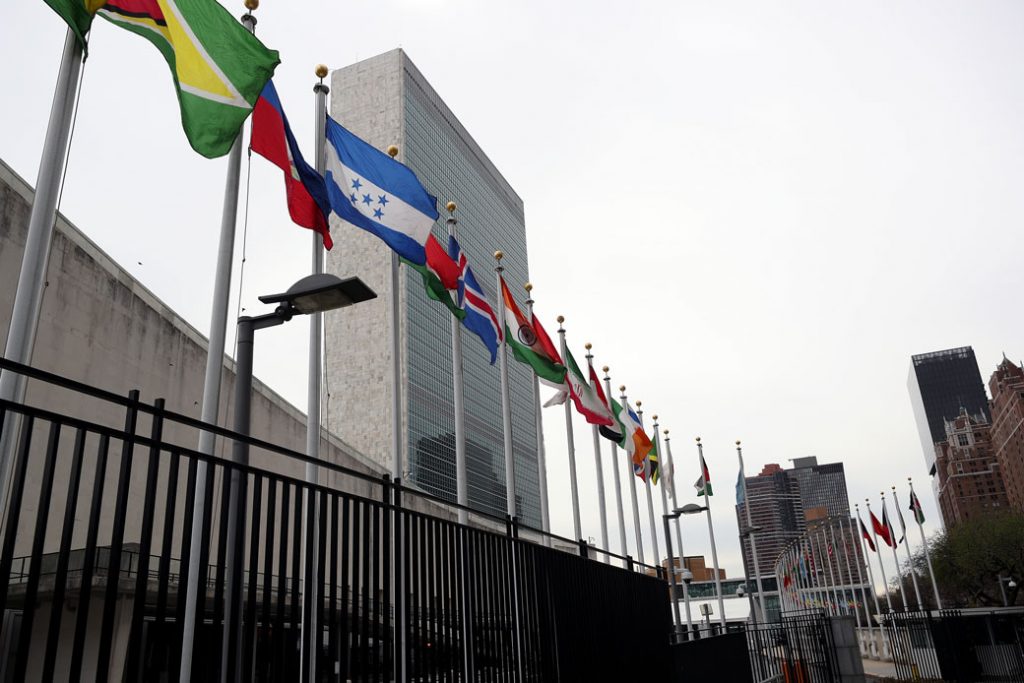The U.S. State Department released its annual Country Reports on Human Rights Practices last week. The reports are meant to guide U.S. foreign policy, but this year’s release serves as a reminder of the stark disconnect between human rights situations on the ground and the Trump administration’s policies around the world.
In his opening remarks, Secretary of State Mike Pompeo highlighted China, Iran, Venezuela, and Cuba—countries richly deserving of criticism for their dismal human rights records. But he was silent about the abuses committed by some of the administration’s closest friends, including Saudi Arabia, Russia, and the Philippines. This focus sends the dangerous signal that the administration cares more about the violations of its adversaries than those of its friends and partners.
Congress originally mandated the human rights reports to ensure that advancing human rights is a priority in U.S. foreign policy. Provisions of the Foreign Assistance Act of 1961 prohibit U.S. security and development assistance from flowing to countries found to engage in “gross violations of internationally recognized human rights.” To help assess which countries might be banned from receiving U.S. assistance, in 1975, Congress began requiring the secretary of state to submit an annual “full and complete report” on human rights conditions in countries that received U.S. aid. In 1979, the reporting requirements were expanded to include all U.N. member states. These important reports should be taken seriously by Congress and the administration, and they should serve as guidance to help craft U.S. foreign policy that bolsters respect for human rights around the globe.
The schism between the report’s findings and U.S. foreign policy today
Today’s foreign assistance decisions seem completely unmoored from the most recent reports’ findings. Take Saudi Arabia, for example: The country report finds that the Saudi-led coalition conducted airstrikes that resulted in civilian casualties on “multiple occasions” and failed to engage in meaningful efforts to hold individuals accountable for violations in its war in Yemen. Yet the Trump administration continues to sell billions of dollars of weapons to Saudi Arabia, and last summer, President Donald Trump vetoed congressional efforts to block $8 billion in sales.
Hungary is another example of disconnect. The report expresses serious concerns about anti-Semitic remarks and policy from government officials, linking to the State Department’s Report on International Religious Freedom that documents similar concerns about anti-Muslim and anti-Semitic incidents. Despite these findings, Secretary Pompeo just welcomed Hungary into his new International Religious Freedom Alliance, a group of “like-minded partners who treasure, and fight for, international religious freedom for every human being.”
The reports on Mexico and Guatemala represent yet another chasm between the reports’ findings and the administration’s actions. The Mexico report documents the “victimization of migrants by criminal groups and in some cases by police, immigration officers, and customs officials.” It also identifies an expanded Central American gang presence in Mexico that threatens migrants who fled the same gangs in their home countries. On Guatemala, the report notes, “Migration authorities lacked adequate training concerning the rules for establishing refugee status.” Yet the Trump administration’s “Remain in Mexico” policy is forcing refugees fleeing these abuses to return to dangerous situations. Meanwhile, its so-called safe third country agreements with Guatemala—under which the United States is actively deporting Central American asylum-seekers rather than processing their claims within U.S. borders—assumes that Guatemala and other Central American countries have the capacity to assess claims for protection, even though the report contradicts this assumption.
Using the reports’ findings to guide U.S. foreign policy
Revitalizing the human rights reports as a factual basis for policymaking should be a top priority for a new administration. As a first step, U.S. ambassadors should convene meetings with host governments and use the reports as an opportunity to raise human rights concerns. The administration should also ensure that the reports cover the full range of human rights—in particular, restoring the sections that focus on women’s and reproductive rights, which the Trump administration has cut from the reports for the third year in a row.
The reports serve as an important tool for advocates around the world as well and should be treated as such. In order to make them more broadly accessible, the State Department should immediately translate the reports into more local languages—this year’s report is currently only available in English. These human rights reports give activists a credible tool to press for change in their home countries; delaying these translations makes it harder for activists to access this information.
Congress should also reengage on the reports. While the executive branch is responsible for producing them, the legislative branch should use the reports as an opportunity to oversee how the findings are or are not informing the administration’s foreign policy. The U.S. House Foreign Affairs Committee and U.S. Senate Foreign Relations Committee have not held a hearing on the human rights reports in years. They should call senior officials to testify and defend the administration’s policies in light of the facts in the reports in front of a U.S. and global audience on an annual basis.
Conclusion
In his briefing during the release, newly minted Assistant Secretary for Democracy, Human Rights, and Labor Robert Destro, whose office oversees the production of the reports, touted their objectivity and importance. However, he also said: “What the world chooses to do with the information is up to them.” That remark encapsulates perfectly the Trump administration’s abdication of leadership on human rights. This passivity is the antithesis of the Universal Declaration of Human Rights, which recognizes that respect for human rights is the foundation of global peace and security. As Americans, we all have a stake in ensuring that people’s rights are respected. But we need principled and informed leadership to make that a reality. Leveraging the State Department’s annual release of its Country Reports on Human Rights Practices is an excellent place to start. (https://www.americanprogress.org/issues/security/news/2020/03/18/481884/leveraging-state-departments-human-rights-reports-inform-u-s-foreign-policy/)





































